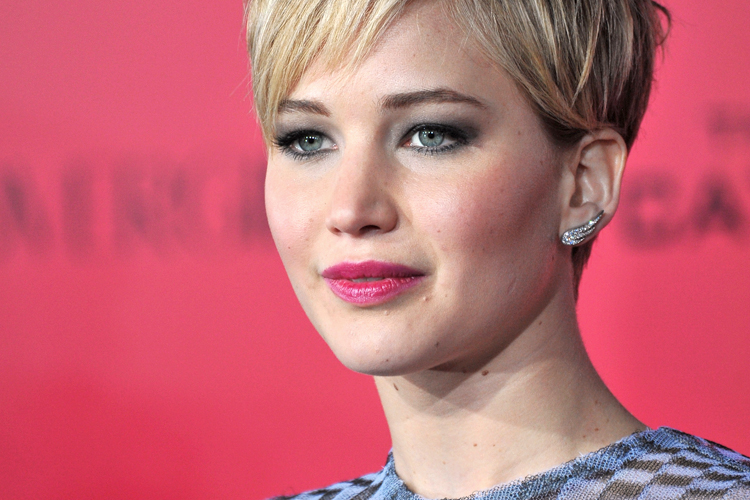We treat looking as a passive act. We make the mistake of assuming that what happens when we’re just sitting at a computer isn’t an active decision. But the last few weeks have given us all ample opportunities to rethink that belief – and to confront the moral imperative to sometimes just close our eyes. Or to put it another way – you don’t have to look at Jennifer Lawrence’s nudes.
When the news broke over the weekend that an expansive collection of nude photographs purporting to be of female celebrities including Kate Upton, Mary Elizabeth Winstead and the Oscar-winning Lawrence had been posted to AnonIB and 4chan, it sparked an instant and expected slew of debates over slut shaming, Internet privacy and the media’s salacious slobbering over a so-called scandal. Yet when I first heard about it, my first response was, “There’s something else I’m going to have to actively avoid looking at now.”
You can argue whether what happened with these photos was yet another example of the routine abuse women are subjected to online. The misogyny and entitlement in the commentary around the photographs certainly strongly supports that, although there’s also a well-documented history of frenzy around celebrity penis pics as well. When Deadspin was set to run photos of Brett Favre’s alleged member a few years ago, Business Insider excitedly posted a countdown clock to their release. And when, three years ago, Andrew Breitbart claimed to possess a crotch shot of Anthony Weiner, it unleashed a virtual stampede to see who could tweet it first. Then, as now, the images served as traffic busting fodder for unimaginable numbers of eyeballs. You can circle endlessly over how someone in the public eye conducts his or her private life, but here’s a thought — personal accountability starts at home. The important question isn’t what they’ve done. It’s what you and I do.
On Sunday, a reader sent me a fairly typical exchange she’d engaged in online with a Hollywood male actor. In it, he’d admitted he’d looked at the Lawrence pics because “looking at them is human nature” and he argued, “Stop shaming people for being their sexual selves!” There is perhaps a point to be made that these nude images, which are not inherently shameful, have now been twisted by the people who stole and exposed them, into a tool for shaming. There is maybe some inspiration to be found in Scarlett Johansson’s blasé response when nudes of her leaked a few years back, and she shrugged, “I know my best angles. There’s nothing wrong with that.” But that’s not the point.
The fact that something is out there and can be seen doesn’t mean it must be seen, and it definitely doesn’t mean that some random guy should excuse his voyeurism as an act of liberation toward the woman whose stolen photographs he’s ogling. On Twitter this weekend, Mary Elizabeth Winstead wrote, “To those of you looking at photos I took with my husband years ago in the privacy of our home, hope you feel great about yourselves.” Who knows, maybe they do. But I can’t imagine the hollow satisfaction. And by the way, spoiler, you know what a naked celebrity looks like? A human being without clothes on. Grow up, dillweeds.
I have thought about the act of not looking a great deal in the past few weeks. I thought about it when several news sites ran the video of St. Louis man Kajieme Powell being shot to death by police. I thought about it again when those sites also ran the viral cellphone video of four men being murdered as they drifted in the water by their fishing boat. And I thought about it yet again when the video of the brutal decapitation of journalist James Foley emerged, and when the New York Post ran the image of the blade touching his throat on its front page. We serve up death and sexuality in the guise of public information when it’s really just about prurient curiosity. We expose people at their most vulnerable. We treat the human experience as a buffet, and assume that if it’s been documented, it’s there for the taking in between BuzzFeed quizzes and TMZ road accident footage. Yet what’s a momentary diversion for the viewer is a conscious act of disrespect to the subjects and their families. We often don’t have a say in what gets disseminated. But we have a choice about whether or not to participate in its perpetuation. This is mine: Unless you have explicitly invited me into the process, I don’t need to see you die and I don’t need to see you naked. I won’t look. And if that means lately I spend an increasing amount of my online time figuring out what to avoid rather than what to see, that’s just fine.


